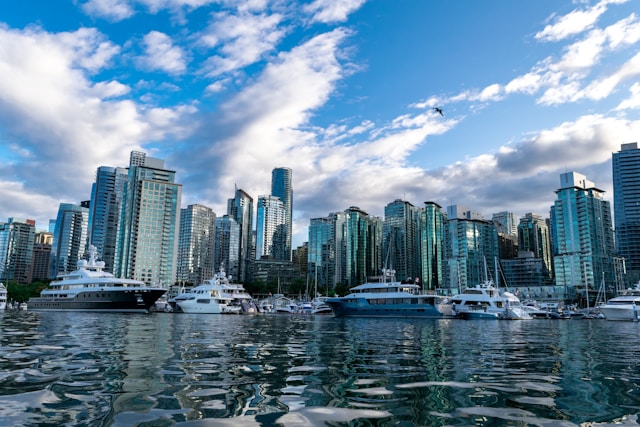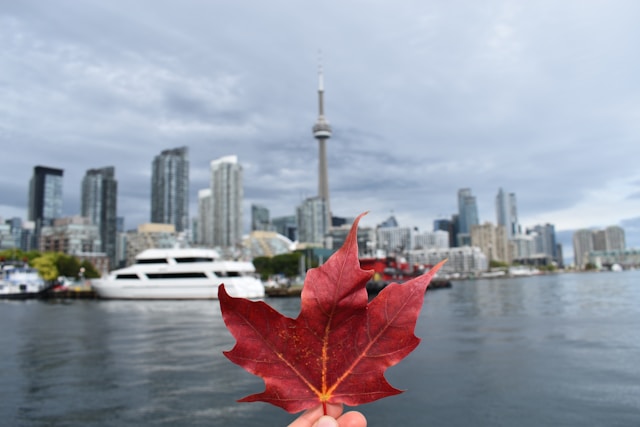Owning income properties in Canada while living abroad can be an incredible source of passive income — but only if managed properly. Between tax compliance, rent collection, maintenance coordination, and tenant communication, remote management can quickly turn into a logistical nightmare without local support.
That’s why non-resident landlords are turning to professional property management firms that combine technology, local expertise, and strategic oversight to keep operations running smoothly year-round.
This guide explains how to effectively manage Canadian rental properties from overseas, minimize risk, and maximize returns — even while you’re thousands of kilometres away.
1. Understanding the Non-Resident Landlord Landscape
When you’re living outside Canada but earning income from Canadian real estate, you’re legally classified as a non-resident landlord under the Canada Revenue Agency (CRA).
That classification comes with several responsibilities:
- Non-resident withholding tax: 25% of gross rental income must be remitted monthly to the CRA unless you file a Section 216 return.
- Designated Canadian agent: You may need a Canadian representative (often a property manager) to handle filings and remittances.
- Reporting obligations: Annual tax reporting and compliance for all income and expenses related to your properties.
Partnering with a licensed property manager ensures these obligations are met correctly — avoiding penalties or double taxation.
To learn how professional oversight supports financial planning, check out Using Evaluation Reports to Attract Investors.
2. Why Property Management Is Essential for Overseas Owners
Managing rental properties remotely is about more than just collecting rent — it’s about maintaining control without being physically present.
A Canadian property manager acts as your local representative, handling:
- Tenant screening, leasing, and renewals
- Rent collection and deposit management
- Maintenance, inspections, and emergency response
- Financial reporting and record-keeping
- Compliance with provincial tenancy laws
For example, in Ontario, serving legal notices or performing inspections must follow strict timelines. Missing one notice or form can result in delays, fines, or disputes.
Learn how to avoid these common risks in Avoiding Legal Pitfalls in Ontario Landlord-Tenant Relations.
3. Setting Up Efficient Rent Collection and Financial Systems
When you live abroad, cash flow predictability becomes the cornerstone of successful remote property management. You need systems that ensure consistent income, transparent reporting, and easy access to funds.
Professional management teams provide:
- Automated rent collection through secure online portals
- Currency transfer support for international landlords
- Monthly and annual income statements for tax filing
- Budgeting and forecasting tools for each property
For an in-depth look at how structured leasing and forecasting stabilize cash flow, read Cash Flow Optimization Through Strategic Leasing.
This level of financial clarity ensures you can monitor performance anywhere in the world — from a condo in Dubai to a villa in France.
4. Navigating Tenant Screening and Remote Leasing
Remote landlords can’t meet every tenant in person, but that doesn’t mean they should compromise on screening.
Professional management firms use:
- Background and credit checks
- Employment and income verification
- Landlord reference interviews
- Online lease signing and document storage
With digital onboarding, you can approve tenants securely and efficiently from abroad.
Strategic lease design is also key — your leases should account for:
- Maintenance responsibilities
- Local rent increase regulations
- Termination clauses for sale or relocation scenarios
These details help protect your investment from misunderstandings and ensure steady returns.
To learn how leasing structure impacts overall returns, explore Cash Flow Optimization Through Strategic Leasing.
5. Handling Maintenance and Emergencies Abroad
One of the biggest challenges for non-resident owners is responding to urgent maintenance issues. Frozen pipes, heating failures, or leaks can’t wait for an overseas call-back.
Professional property managers maintain 24/7 emergency contacts and coordinate:
- Licensed contractor repairs
- Preventive inspections
- Seasonal property preparation (e.g., winterization)
- Maintenance budgeting and tracking
For condo landlords, coordination extends to board communication and shared facility maintenance. See Harmonizing Governance and Operations: The Condo Board and Property Manager Partnership for insights into how effective communication with condo boards protects value and ensures compliance.
6. Ensuring Legal Compliance from Abroad
Even while living outside Canada, you remain bound by Canadian tenancy laws. From serving rent increase notices to handling disputes, compliance is non-negotiable.
A property manager ensures:
- Rent increases follow Ontario’s annual guideline
- Entry notices meet the required 24-hour standard
- Evictions comply with the Residential Tenancies Act
- Tenant deposits are handled per legal requirements
Legal missteps can quickly escalate into formal hearings or property damage. Review Avoiding Legal Pitfalls in Ontario Landlord-Tenant Relations to understand how consistent management prevents costly mistakes.
7. Using Data and Reports to Drive Remote Decision-Making
When managing from abroad, visibility is your strongest asset. Without clear performance tracking, you risk making decisions based on assumptions rather than evidence.
That’s why professional management includes custom evaluation reports — detailed documents showing:
- Monthly income and expenses
- Vacancy rates
- Maintenance costs
- ROI and cash-on-cash return
- Market rent comparisons
These reports transform your properties into a measurable portfolio — not scattered assets.
For deeper insight into how data attracts investors and improves decision quality, visit Using Evaluation Reports to Attract Investors.
8. Scaling While Abroad: Partnerships and Joint Venture
Non-resident investors often look to expand portfolios while living overseas. Joint ventures (JVs) and partnerships make that growth possible — but only if managed transparently.
A property management company acts as an operational anchor in such partnerships, handling:
- Property-level reporting for each JV
- Revenue sharing calculations
- Communication between co-investors
- Expense reconciliation and documentation
To understand how to set up fair, growth-oriented partnerships, see Structuring Joint Ventures for Investment Properties: A Practical Approach to Partnership-Driven Growth.
Professional oversight ensures everyone — local or international — receives accurate financial data and performance updates.
9. Coordinating with Condo Boards as a Non-Resident Owner
If part of your investment portfolio includes condos, coordination with condo boards adds another layer of complexity.
A property manager ensures seamless communication between you (the non-resident owner) and your condominium corporation.
They handle:
- Rule compliance and documentation
- Fee payment and budget updates
- Owner representation in board meetings
- Maintenance coordination with shared contractors
Learn how governance alignment between landlords and boards drives better outcomes in Harmonizing Governance and Operations: The Condo Board and Property Manager Partnership.
This collaboration ensures your condo investment remains compliant, well-maintained, and profitable — even when you’re not in the country.
10. Mitigating Risks: Tax, Currency, and Communication
To successfully manage Canadian rentals abroad, landlords must also address three critical risk categories:
Tax Risk
Ensure your manager coordinates with an accountant for:
- Non-resident withholding and filings (NR6, NR4, Section 216)
- Annual income statements
- CRA-compliant expense records
Currency Risk
Exchange fluctuations can affect your profit margins. A manager who handles multi-currency accounts or scheduled transfers helps you preserve returns.
Communication Risk
Time zones and response delays can frustrate tenants. Managers bridge this gap through tenant portals, automated messaging, and regular owner updates.
These processes ensure continuity, compliance, and transparency across all parties.
11. Tips for Smoother Overseas Management
Here are some best practices for non-resident landlords:
- Set clear communication frequency with your property manager.
- Use digital signatures and online banking for all transactions.
- Request quarterly performance reviews and financial summaries.
- Stay informed about Ontario rent control and tax changes.
- Schedule annual property evaluations to assess market performance.
Even abroad, staying engaged through reports and virtual meetings ensures your investment grows steadily.
Conclusion: Your Property, Professionally Managed from Anywhere
Managing Canadian rental properties from abroad doesn’t need to be stressful — it just needs to be structured.
With the right professional property management team, you can:
- Maintain stable cash flow through strategic leasing
- Stay compliant with Ontario’s landlord-tenant laws
- Build investor confidence through transparent evaluation reports
- Manage condos seamlessly via effective governance alignment
- Grow strategically through structured joint ventures
If you’re living abroad and want your Canadian investments to stay profitable, compliant, and stress-free, partner with ManageYourProperty.ca — your on-the-ground team ensuring everything runs smoothly, no matter where in the world you are.





